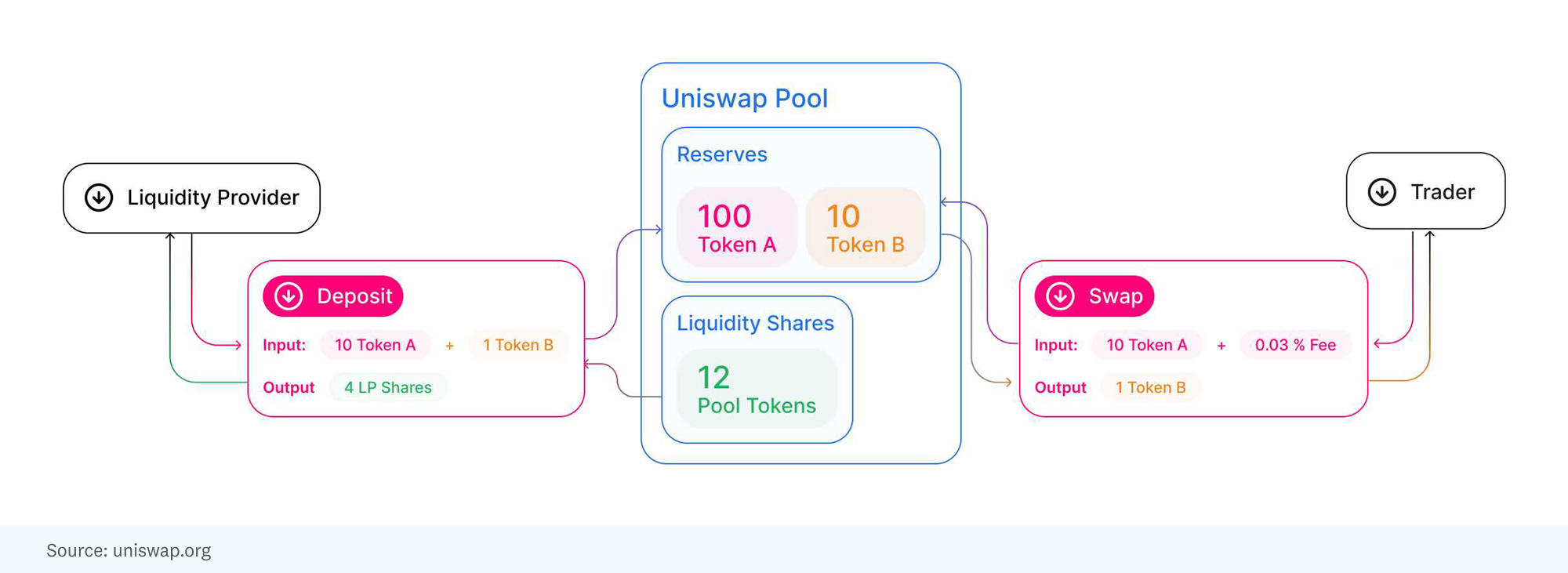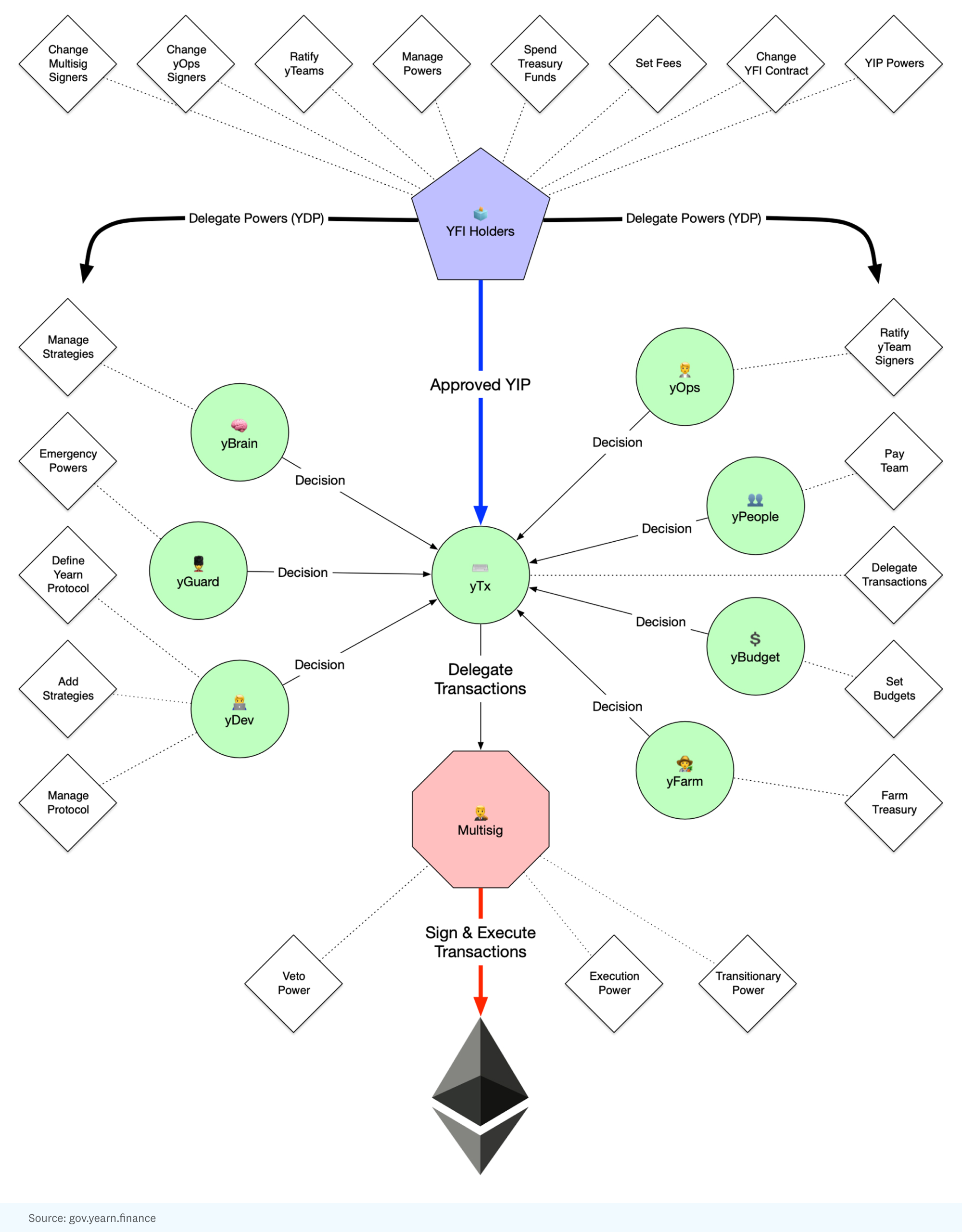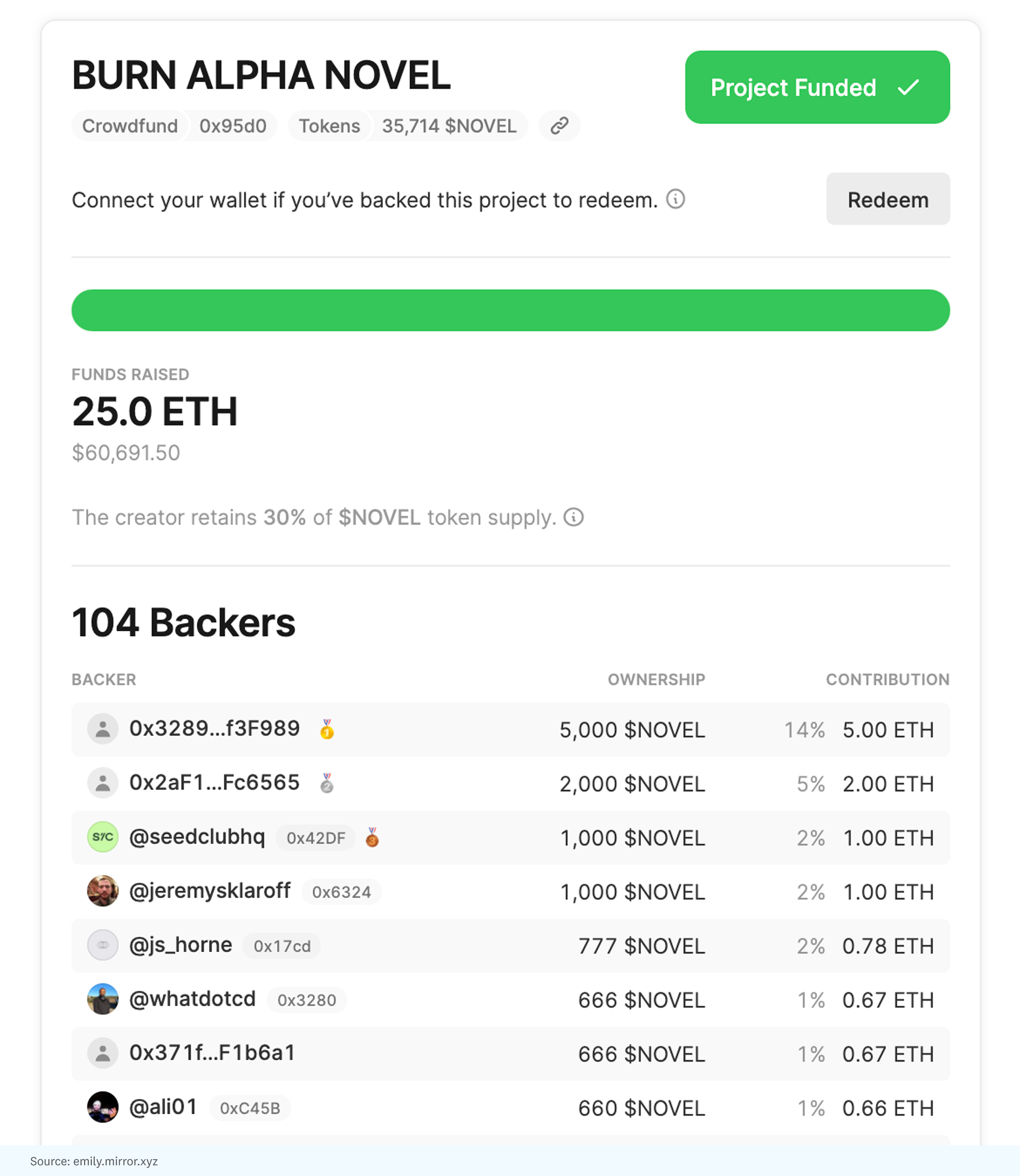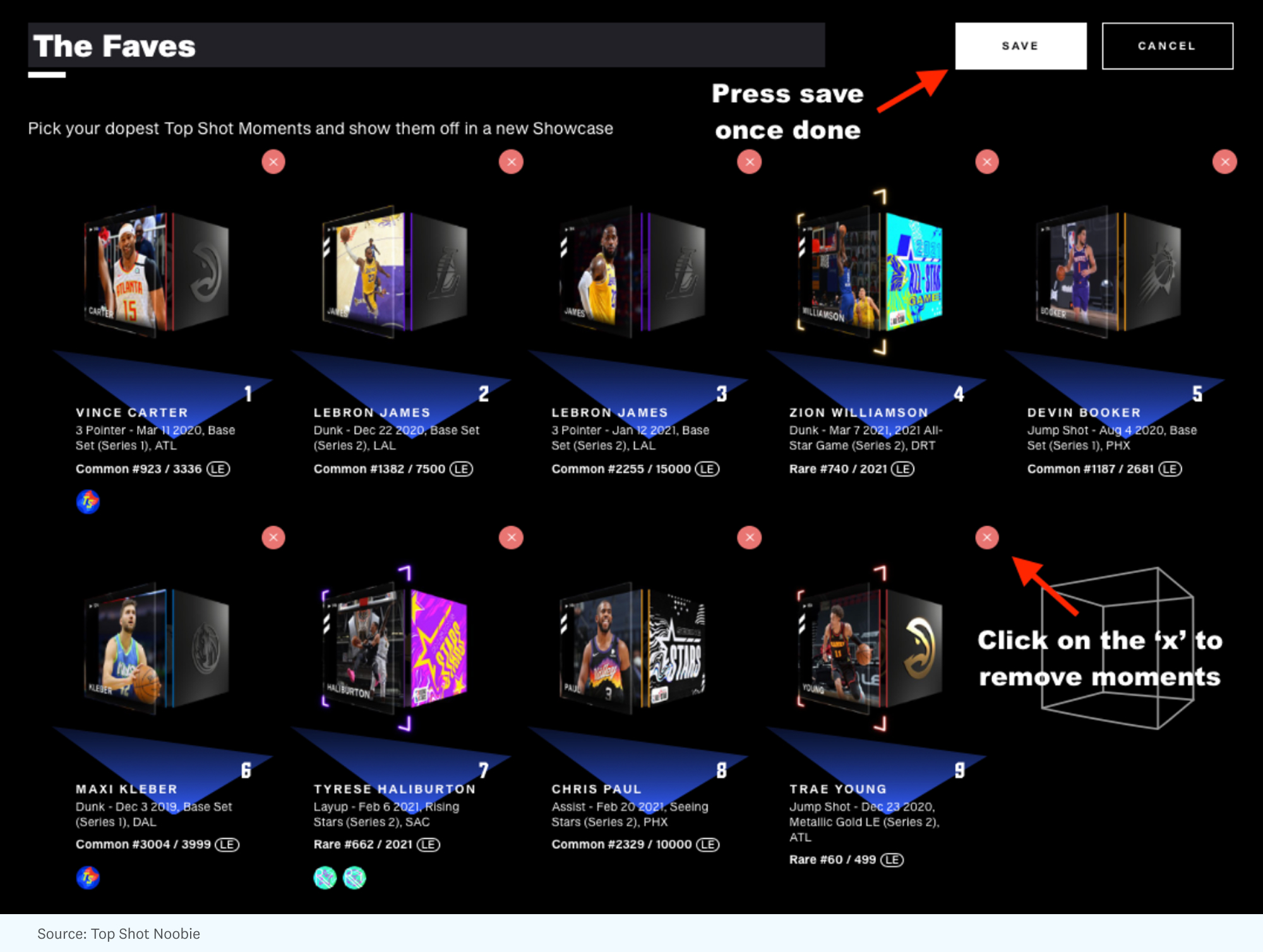One of the big, frequently discussed ideas of crypto is that it enables creators and communities to build their own internet-native economies. A key component of these economies is tokens, which got a bad rap during the ICO (initial coin offering) boom a few years ago. Yet tokens are the fundamental unit of value in crypto economies. They are (as has been argued by others too) a breakthrough in open network design, because they are a mechanism for incentivizing open network participants, including users, developers, investors, and service providers.
But what IS a token exactly? At the simplest level, tokens are just code that lives on a global peer-to-peer network called a blockchain. But unlike other forms of money, they’re digitally native, programmable, and secured by one’s crypto wallet and private key. Cryptocurrencies are just one type of token.
There are two main categories of tokens: fungible (e.g., interchangeable) and non-fungible (e.g., unique). As more creators and communities build their own crypto economies, fungible tokens will be used to exchange goods, store value, and make collective decisions. Meanwhile, non-fungible tokens (e.g., NFTs) will be used to create new business models centered on collectibles, rewards, achievements, and more — giving people a sense of identity, status, and belonging.
The gaming industry knows this well. Games like Fortnite leverage fungible tokens (VBucks) and non-fungible tokens (skins, cosmetics, emotes, etc.) to create a rich internet-native economy. In 2020 alone, consumers spent approximately $54B USD on in-game purchases for virtual goods like livestock in FarmVille, skins in Fortnite, and extra lives in Candy Crush. But this is just the beginning of what’s possible.
All the best crypto protocols, social apps, online communities, and marketplaces will need to deeply understand the interplay between fungible and non-fungible tokens to create their own internet economies. But why do we need internet-native economies in the first place?
The limits of traditional economies
Most traditional economies weren’t designed with the internet in mind. As a result, modern economies have a number of issues:
- Lack of access. Globally, about 1.7 billion adults are unbanked. This limits the ability for people to start businesses, fund projects, and take entrepreneurial risks.
- Inefficiency. High fees on credit card transactions and remittances as well as high interest loans make it difficult for low-income communities to participate in the economy.
- Opacity. Banks operate under complex structures that make it difficult to understand their financial health and the risks they’re underwriting. Citizens are relegated to trusting that the government will preserve economic value through monetary policy, capital controls, and FDIC insurance; we’ve seen how this hasn’t always worked for us in the past.
These limitations reduce economic growth and amplify inequality. As more economic activity moves online, we need internet-native tools for building productive economies. Many people don’t have a bank account but do have a mobile phone with internet access.
This is where cryptonetworks come in. They provide the cryptographic (e.g., security without a third party) and economic building blocks for modern forms of production, distribution, trade, and consumption.
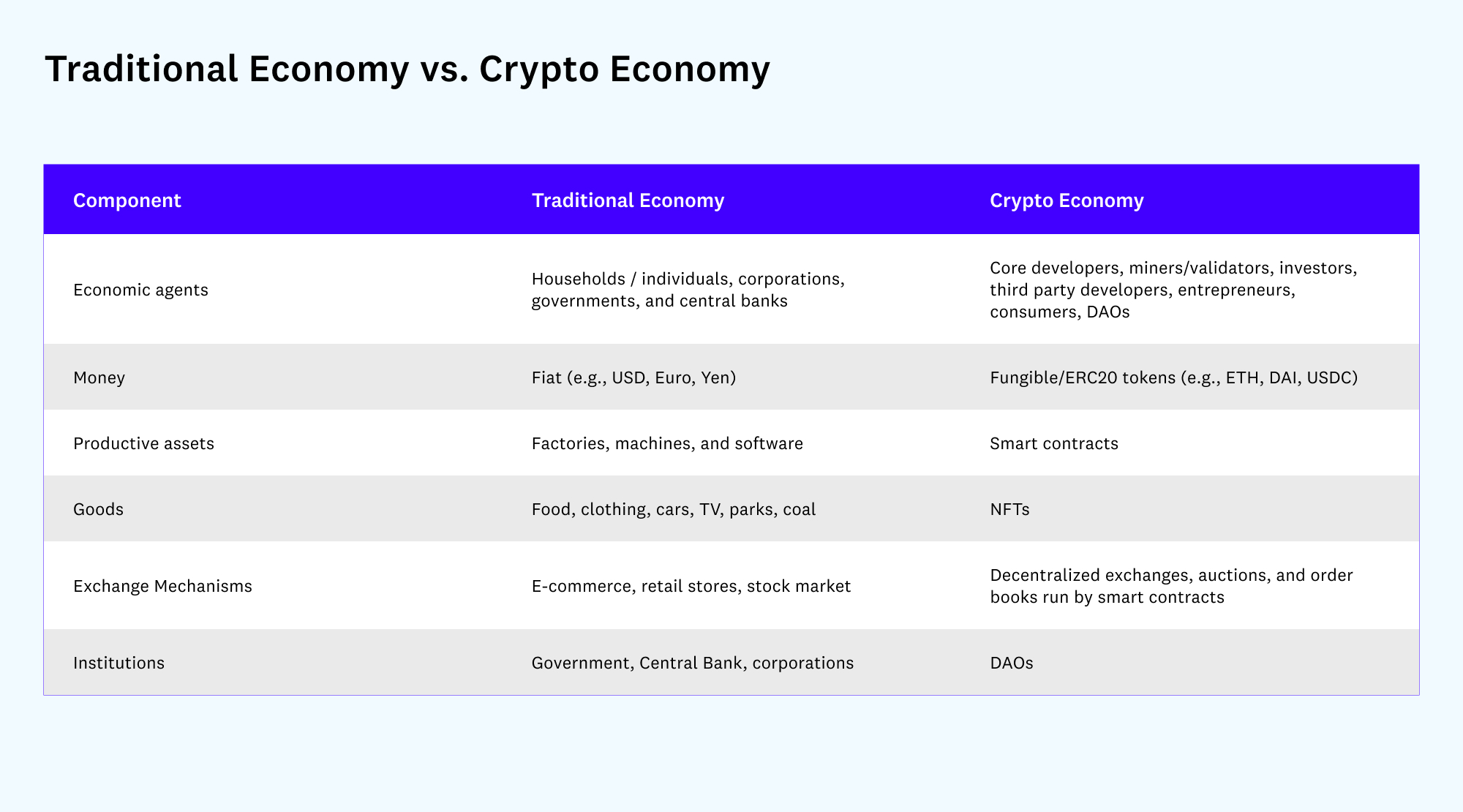 Let’s start by going deeper on fungible vs. non-fungible tokens.
Let’s start by going deeper on fungible vs. non-fungible tokens.
Fungible tokens
Traditionally, money has served three primary purposes:
- A medium of exchange to facilitate trade
- A store of value to preserve wealth over time
- A unit of account to provide a standard measure of value
Economies invest money into productive assets like factories, scientific research, technology development, public infrastructure, etc. to drive economic growth. To make life enjoyable, consumers also purchase relatively “unproductive” goods like flat-screen TVs and high-end purses or sneakers.
Cryptoeconomies follow a similar dynamic. Money is circulated through an issuance policy, and reinvested along a spectrum of productive and unproductive assets. For example, the code running the Bitcoin network is scheduled to issue 21M bitcoins, rewards miners for securing the network, and allows bitcoin to be transferred directly between parties for various use cases. In the Ethereum network, money is represented by the ERC20 standard for fungible (i.e., interchangeable) tokens. Meanwhile, goods are represented by the ERC721 standard for non-fungible (i.e., unique) tokens — these are more commonly referred to as NFTs. (There’s also the ERC1155 semi-fungible standard but for simplicity let’s focus on ERC20s and NFTs.)
In addition to serving as a form of internet-native money, the programmable nature of ERC20 tokens enables three other use cases: equity, utility, and governance. Many tokens are a combination of each. Let’s take a closer look at these use cases as we go deeper into the taxonomy of tokens.
Equity tokens
Equity tokens are fungible tokens that represent ownership in an asset or a pool of assets. These tokens are used to incentivize participants to provide a scarce resource to a network. In cryptonetworks, scarce resources include capital, developers, customers, creators, and computing power.
When designing an equity token system, it’s helpful to think through the following questions:
- What is the scarce resource our protocol needs?
- Who has this scarce resource?
- How do we incentivize them in a positive-sum way?
An example of how a protocol uses equity tokens to incentivize stakeholders to provide a scarce resource is Uniswap, a decentralized exchange for swapping tokens on the Ethereum network. Traditionally, centralized exchanges use a matching algorithm to determine which orders get executed; it’s a black box, with no transparency, auditability or community ownership. But with Uniswap, which is powered by open-source smart contracts, anybody can independently verify how their order will be executed. Since Uniswap’s goal is to offer the best execution price for token pairs on the Ethereum network, they need to incentivize liquidity providers (LPs) to deposit these tokens into pools that people can trade against.
The protocol incentivizes LPs by giving them a proportional share of trading fees for any pool they’re an LP in. When an LP deposits a token pair into a pool, the protocol issues “pool tokens” to the LP, which gives them a pro-rata share of trading fees.
In this case, LPs are incentivized through equity tokens (e.g. pool tokens) to offer their scarce resource (e.g. capital) to improve the network.
Utility tokens
Utility tokens are fungible tokens that unlock functionality in a smart contract or off-chain system (like a Discord community). Utility tokens are difficult to enforce off-chain, so they tend to be most valuable when their functionality is enforced purely on-chain, through smart contracts.
When designing a utility token system, it’s helpful to think through the following questions:
- What is the core problem we’re trying to solve?
- Who are we solving it for?
- How do we help them solve it in a positive-sum way?
Some example use cases of utility tokens — and their resulting cryptoeconomies — include:
Automated and trust-minimized loans
Until recently, it wasn’t possible to perform trading strategies — like shorting and leverage — in a decentralized/trust-minimized way because traditional exchanges require a centralized counterparty to take on credit risk and provide services like clearing and settlement. To enable decentralized lending on blockchains like Ethereum, protocols require traders to deposit tokens into a smart contract as collateral to unlock the ability to take out a loan. Tokens used as collateral for decentralized loans are an example of a utility token because they unlock automated functionality in a smart contract.
Compound is an example of a lending protocol building this on Ethereum. To take out a loan, you need to deposit one of the approved collateral tokens voted in through governance. Today, this includes tokens like ETH, DAI, USDC, BAT, and UNI, among others. By depositing collateral, you unlock the ability to take out a loan. Traders use Compound to take out leveraged long positions on ETH. For example, they’ll deposit ETH as collateral, borrow a stablecoin like USDC or DAI, and buy more ETH. You could do something similar for a short position. If interest on the loan isn’t paid on time or the value of the underlying collateral decreases a certain amount, automated bots called Keepers are incentivized to liquidate positions by receiving a cut of the transaction fee.
Access to a community
A common problem in online community building is fostering a sustainable community, one that limits spam, ensures members have skin in the game (vs. drive-by commenters), and incentivizes community members to make the overall community desirable to join over the long-term.
Friends With Benefits is an example of a tokenized Discord server for people interested in the intersection of art and crypto. To gain access to the Discord server, you are required to hold 60 $FWB (their token) in your crypto wallet. Today, that’s around $500. The relatively high barrier to entry serves as a “proof of work” to limit the spam that usually comes with public Discord servers. On the other hand, the token also serves as a coordination mechanism. If $FWB fosters a vibrant community, it will drive up demand for access to the community, which could increase the price of $FWB and make the existing community members’ holdings more valuable.
As more communities become tokenized, I think we’ll see best practices like vesting schedules and lockup periods implemented to ensure long-term incentive alignment.
Equity tokens incentivize participation in a protocol, and utility tokens unlock functionality in a protocol while easing coordination among participants. But how do protocols actually govern themselves, so that all these activities can occur seamlessly and transparently? For that, we turn to governance tokens.
Governance tokens
Governance tokens represent percentage ownership over voting rights. It’s difficult for most community members to keep up with the latest developments for specific protocols, so most protocols allow token holders to delegate their votes to trusted representatives.
When designing a governance token system, it’s helpful to think through the following questions:
- What are the public goods that should be governed by our community?
- How should governance tokens be issued?
- How do we design the governance system to be fair, flexible, and transparent?
Let’s go over some example use cases for governance tokens.
Parameter settings and upgrades
Cryptonetworks are powered by smart contracts. These smart contracts execute logic responsible for things like calculating interest rates in a lending protocol, implementing an automated issuance policy for a stablecoin, or determining the exchange rate for token swaps.
When a smart contract is first deployed to the Ethereum network, it may contain admin privileges for certain parties to limit the risks of vulnerabilities. Once the smart contract has been tested enough in prod, admin privileges are usually removed to ensure the core team can’t update the protocol at will.
However, many times the protocol still needs upgrades and improvements. In Uniswap, $UNI holders can vote to turn on a protocol fee switch to redirect 0.05% of trading fees to $UNI holders instead of LPs. In Compound, $COMP token holders can vote on the collateral ratio for new tokens.
Recently, the community for a DeFi protocol called Yearn proposed one of the most sophisticated decentralized governance systems to date. The proposal suggests letting $YFI holders elect committees for specific domains like budget control, development roadmap, and investment strategies.
As all of the above examples show, fungible tokens are a great tool for exchanging goods, storing value, and coordinating online communities.
However, economies, companies, and protocols need business models to fund their growth. Additionally, people need tools to build relationships and feel a sense of purpose. That’s where NFTs come in.
Non-fungible tokens (NFTs)
At a high level, NFTs are unique digital tokens stored on a blockchain. We’ve seen a lot of activity and excitement in this space, but to focus on the bigger picture here, people value virtual goods for six main reasons:
- Identity and belonging
- Status
- Personal meaning
- Relationships
- Collecting
- Superpowers
Let’s take a closer look at how each applies to NFTs in crypto economies.
Identity and belonging
Identity and belonging are fostered by a sense of shared history and storytelling. Religious groups are masters at creating a sense of identity and belonging.
CryptoPunks are a quasi-religion within the crypto community. By owning a CryptoPunk, you signal that you value a historic artifact. You signal that you’d rather hold this artifact and be part of the CryptoPunk community than sell it for a massive bag. HODLers signal their identity by changing their profile picture to their CryptoPunk. Some even remove their CryptoPunk profile picture once they sell to signal this lost identity.
Status
Status is driven by price and scarcity. Whether it’s a Louis Vuitton bag or a Lambo, status signaling is a core part of human nature. On social media, status usually comes from follower counts and engagement metrics such as likes, shares, retweets, etc. These metrics are really just virtual currencies that live in a company’s database. But they’re inefficient because it’s difficult to convert likes and followers into cash. As a result, business-savvy creators use social media as lead generation for their actual businesses like a branded e-commerce store, merch drops, courses, etc.
But what if you could directly redeem likes for money?
I believe crypto-native social apps will create a new form of “non-fungible likes” that feel like the badges and in-game items in video games. For example, Snap’s Spotlight program pays creators for popular content. But it’s an opaque process.
Instead, crypto-native social apps can allow consumers to vote on their favorite content, reward top-voted creators with NFTs, and allow these NFTs to be redeemed for a percentage of a prize pool. The process would be community-driven and independently verifiable because it’s done on-chain through crypto tokens and smart contracts.
Today, top creators are rewarded with inefficient virtual currencies (e.g., likes/follows) and cash from a centralized platform. In the future, creators will build a new form of status through these community-driven NFTs which they own through their private key and can directly redeem for money.
Personal meaning
Personal meaning is driven by sentimental value and customization. Many people have a baby toy, trophy, or ring that means something special because of the story behind it. The fasting app, Zero, gives users badges to reward certain milestones like 24-hour fasts or 5 consecutive days of intermittent fasting.
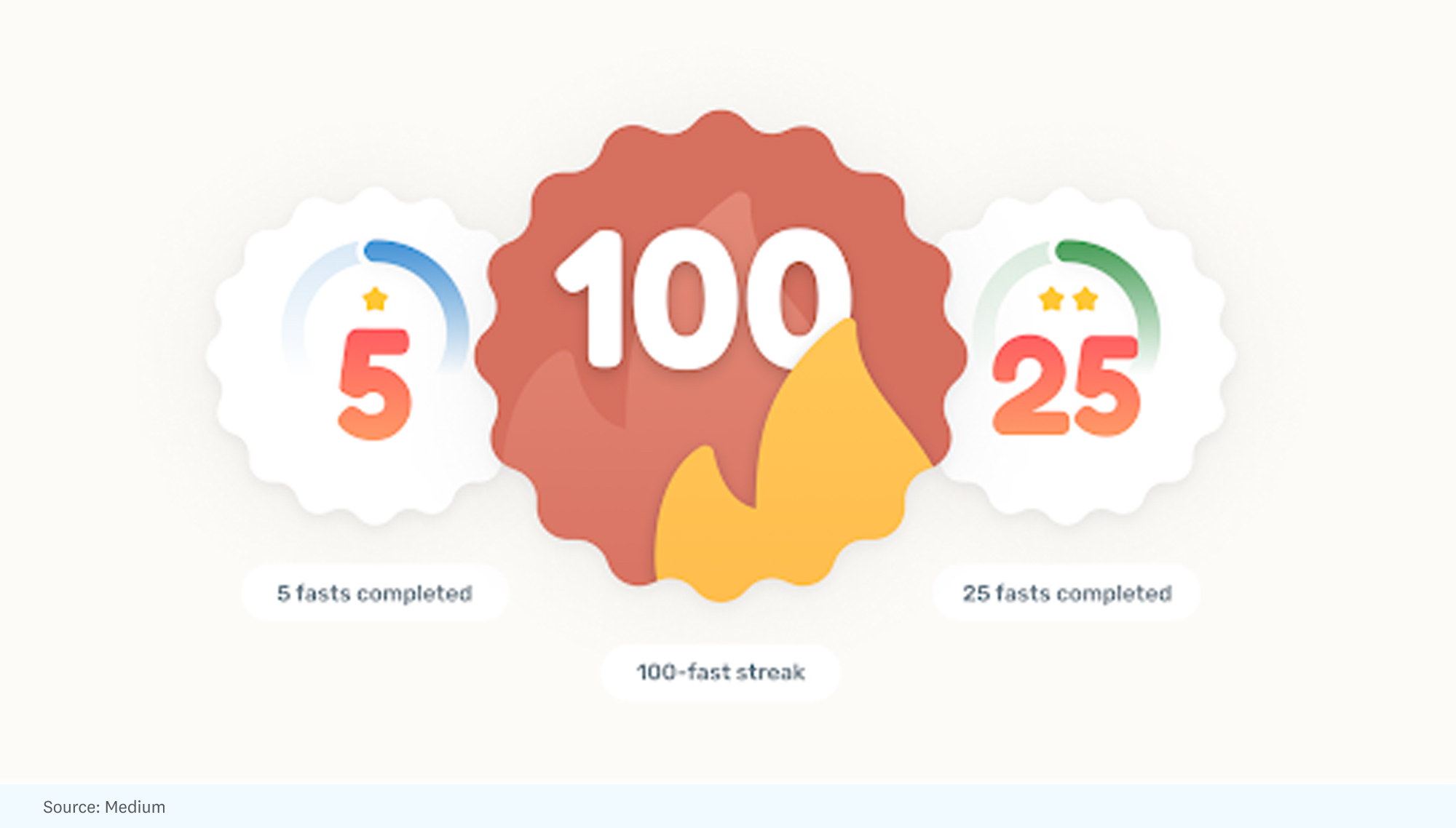
Similarly, crypto protocols can issue NFTs to commemorate milestones and achievements based on on-chain activity. For example, Rabbithole partners with leading DeFi protocols to create quests that people can perform to receive a special NFT and/or protocol tokens. This helps protocols with customer acquisition while giving people a fun way to onboard into crypto by performing on-chain quests for special NFTs.
Another example is Uniswap’s v3 protocol. Whenever a liquidity provider (LP) deposits into a pool, the protocol transfers the LP an auto-generated NFT based on a number of factors like which pool they deposited into and at which range in the liquidity curve.
Over time, I believe the internet-native version of a trophy case and a walk-in closet will be collections of NFTs that commemorate important on-chain activity.
Relationships
In Japan, business people exchange gifts to build trust and signal respect. On Twitch, viewers send tips and buy gifts to signal their affinity in hopes for a shoutout. In cryptoeconomies, tips and gifting could become a core primitive for building relationships online.
Web 2.0 was about social graphs — follows, likes, comments. Web 3.0 is about social + economic graphs — NFTs you buy, projects you invest in, social tokens you earn. Company profiles on Crunchbase are an early example of economic graphs. For most startups, you can see who funded them, how much they received, and when the funding round took place.
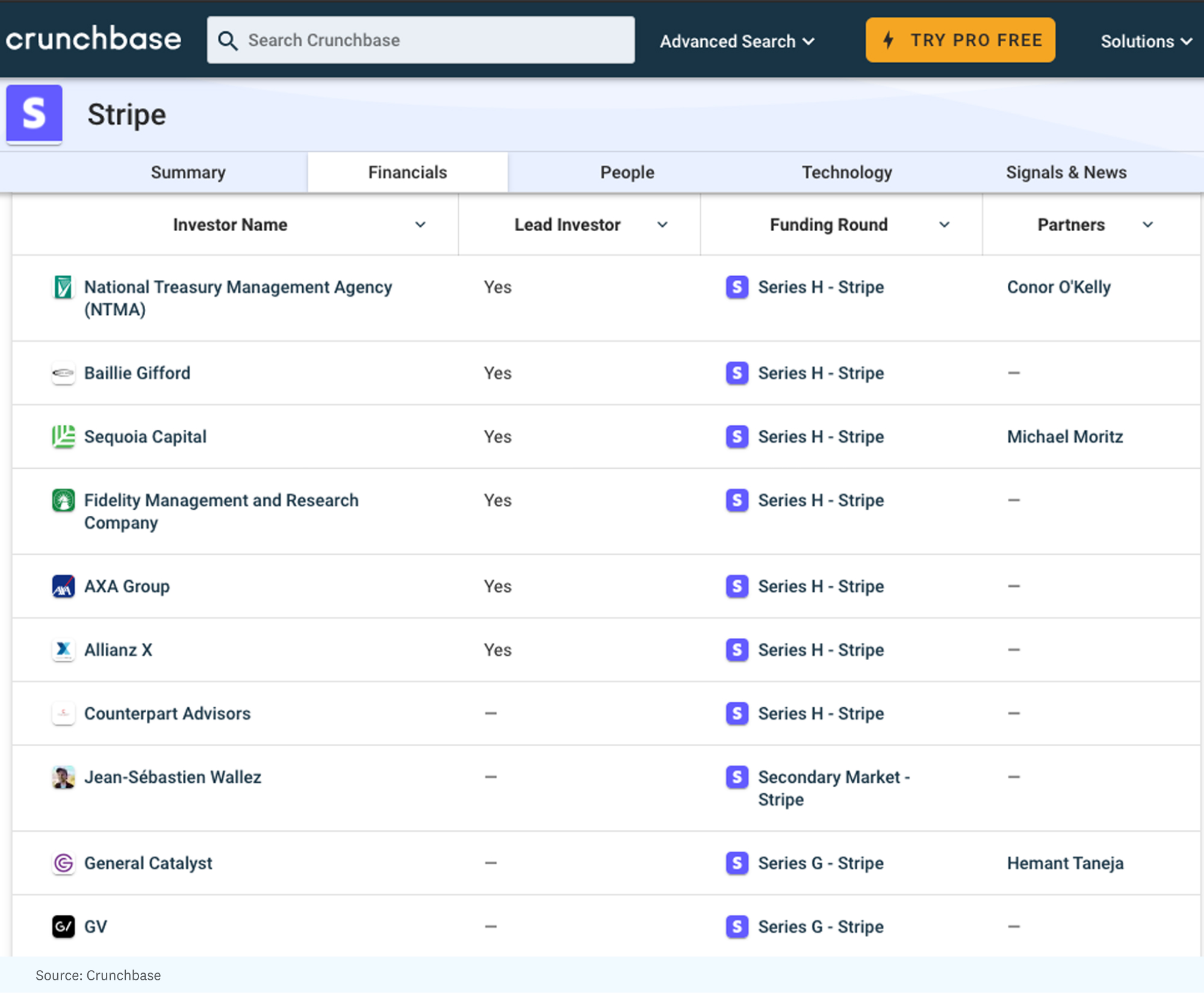
Since all transactions on cryptonetworks are settled on-chain, we’ll be able to build rich economic graphs into social apps, online communities, and marketplaces. We’ll have a crypto-native version of Crunchbase for creators, communities, and all sorts of creative projects. At Mirror, we display these economic relationships for tokenized crowdfunds that have supported creative projects like novels, newsletters and creator residencies.
Although there certainly is a risk of over-financializing relationships, many people have talked about the tight bonds developed through these economic graphs.
Another way NFTs can enable new types of relationships is through peer-to-peer credentialing. Today, the main source of credentialing comes from a college degree, what companies you worked at, social media clout, and references. These are inefficient forms of credentialing: they either aren’t very specific, or they cost a lot of time and energy to become legible (in the case of references).
But what if you could send a “Top Backend Engineer” NFT to the best backend engineers you’ve ever worked with? Or a “Very Helpful VC” NFT to a board member? The benefit of these badges being NFTs is that you can prove they came from a specific person and that it’s scarce (e.g. you’ve only ever given out three of these). I’d much rather hire someone based on referrals from people I respect than a fancy degree.
I believe NFTs like these will enable new types of relationship graphs which we can use to build better recommendation systems for job postings, content, dating apps, and much more.
Collecting
Whether it’s Beanie Babies or Pokemon cards, collecting taps into our innate desire for status and competition. For crypto projects, the key is to make collections legible. NBA Top Shot does this with their Showcase feature. They provide simple tools for creating collections and displaying them on your profile page:
One idea we’re excited about at Mirror is a “digital bookshelf.” What if instead of liking content, you could collect it by buying it at different price/rarity tiers (e.g., gold, silver, bronze) — and then display your collection on your public profile? NFTs enable creators to offer digital goods at different price points, as Chris Dixon mentioned in his post “NFTs and a Thousand True Fans,” which can lead to better monetization over time.
In addition to helping creators improve how they monetize, which many have already talked about, I believe NFT collections will also usher in a curator economy.
What if Spotify listeners voted on playlists and top curators received a mix of cash and Spotify stock? What if Pinterest compensated top pinners the same way they compensate top engineers?
As more digital media becomes an NFT by default, I believe curators of top songs, videos, newsletters, podcasts, and more will be able to bundle their NFT collections and earn royalties based on licensing and engagement. An entirely new curator economy will be born.
Superpowers
A long time ago in a metaverse far away, the gaming industry realized one of the most effective ways to monetize is by giving users “superpowers.” These include things like skipping levels and improving abilities to win the game faster.
Dating apps, which are consistently some of the highest grossing apps in the world, follow a similar approach. Superpowers in dating apps include more swipes and increased visibility, which leads to more matches.

LinkedIn also follows this approach by giving premium subscribers more searches and advanced analytics, which can lead to finding a job faster or hiring the right candidate.
In crypto, NFTs can be awarded to power users to give them special capabilities like being a moderator in a popular community. So why do it as an NFT? The benefit is that the NFT owner can’t be rug pulled by a centralized entity. Instead, a smart contract will execute the terms based on independently verifiable logic.
Depending on the governance mechanism, the community could decide who gets to be a moderator, what privileges they have, and what qualifies as grounds for removal. Instead of a centralized entity deciding who gets “superpowers” and who doesn’t, the community decides.
***
To summarize, cryptonetworks enable secure, transparent, internet-native economies. The fundamental unit of value in these economies are tokens. Fungible tokens can be used for money, equity, utility, and governance. Meanwhile, non-fungible tokens are digital assets that enable new business models and can give people a sense of identity, status, and belonging.
There are still challenges to realizing cryptoeconomies everywhere, such as high transaction fees and clunky onboarding, but over the past decade crypto has gone from a fringe activity to something that more institutions, technologists, and entrepreneurs have started to take more seriously.
In the previous decade, we’ve seen cryptocurrency, cryptofinance (DeFi), and cryptoart. Soon, we could have cryptosocial networks, cryptocommerce, cryptofirms, and more.
When thinking about how to design cryptoeconomies, I often think of this quote by Vitalik Buterin, cofounder of Ethereum: “To me, the goal of crypto was never to remove the need for all trust. Rather, the goal of crypto is to give people access to cryptographic and economic building blocks that give people more choice in whom to trust.”
The next decade will be about using these economic and cryptographic building blocks to design a new generation of transparent and equitable internet-native economies.


